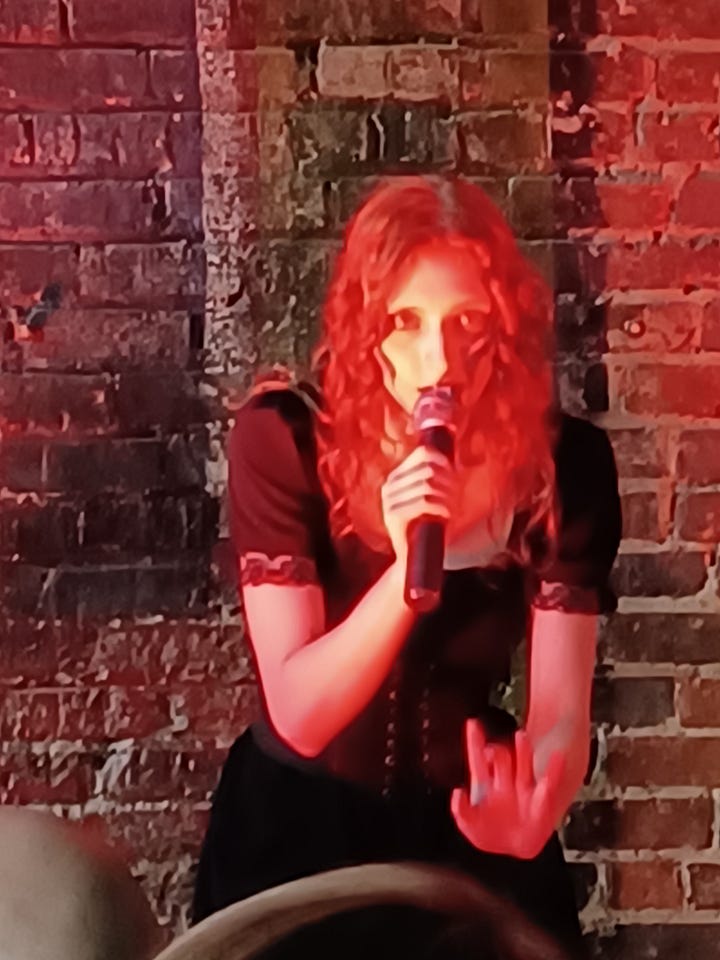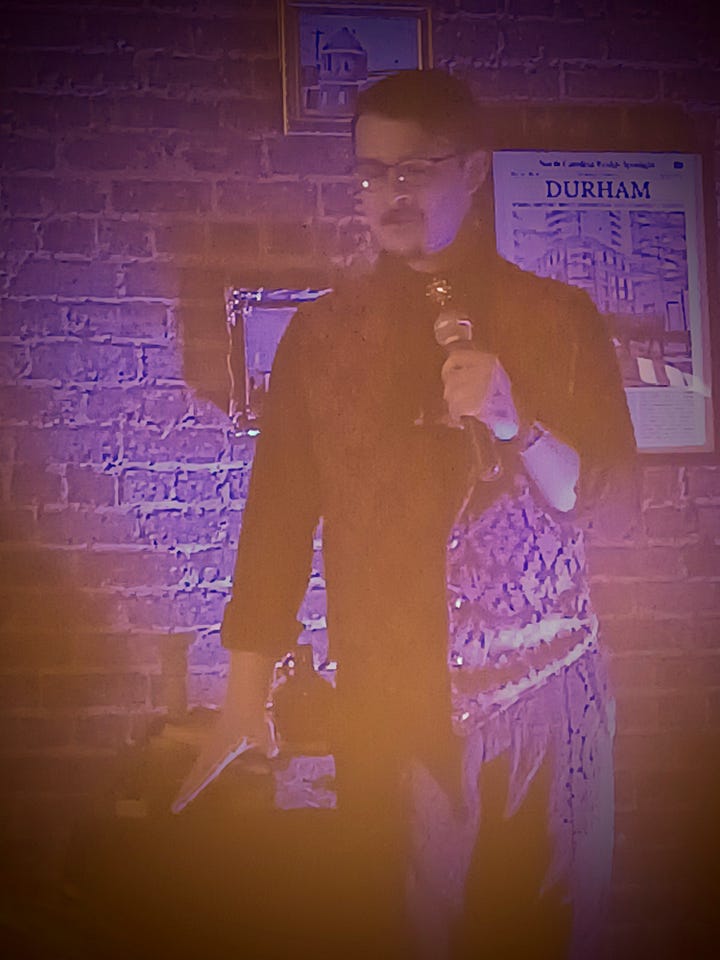This Halloween season, I've enjoyed experiencing literary classics that conjure up horror, either real or just psychological -- it's hard to tell. "The Tell Tale Heart" and other works by Edgar Allan Poe (1809-1849) were the focus of a creative speakeasy and cocktail bar by actors and Poe historians in Durham, NC.


The Edgar Allan Poe Bar, speakeasy, and theater experience is a national tour. Check Facebook for details.
Here's the classic performance of Tell Tale Heart by Sir Christopher Lee, revealing how guilt can overwhelm a vulnerable mind.
Here's Lee's rendition of Poe's "The Raven":
YouTube comment from @lenoreleitch5297: "My parents were both teachers - my mother of French and my father of English. Although my parents separated when I was very young, my grandmother told me that, when they were dating, they used to sit and read poetry to each other. I was named for the Lenore in this poem almost seven decades ago but must confess that until tonight I had never read The Raven. I am actually glad because tonight I have just heard it, for the first time, recited in the most profound way and it makes me realize the passion my parents must have felt for language and each other, if only for a little while."
I also visited Washington Irving's home near Tarrytown, NY and enjoyed "The Legend of Sleepy Hollow," asked once again what really happened to Ichabod Crane, and the mystery of the headless horseman (an archetype since medieval Europe).
Irving (1783-1859) is considered a founding father of American literature. He was a short-story writer, essayist, biographer, historian, and diplomat of the early 19th century. His most famous short stories were “Rip Van Winkle” (1819) and “The Legend of Sleepy Hollow” (1820). His Sunnyside Hudson Riverfront Estate is worth a tour.
Legend of Sleepy Hollow Puppet Show (20 Minutes)
Lots of longer versions of this classic on YouTube.
Related:
Learning from the Irish How to Treat the Dead and Demystify Death
When visiting Dublin, Ireland, I was struck by how well the Irish treat their dead. Maybe the tradition goes back to early Celtic times. They seem to have a strong belief that their loved ones who have passed away remain with them in their lives. They visit cemeteries regularly, bringing not only flowers but gifts, and have conversations at gravesites w…





